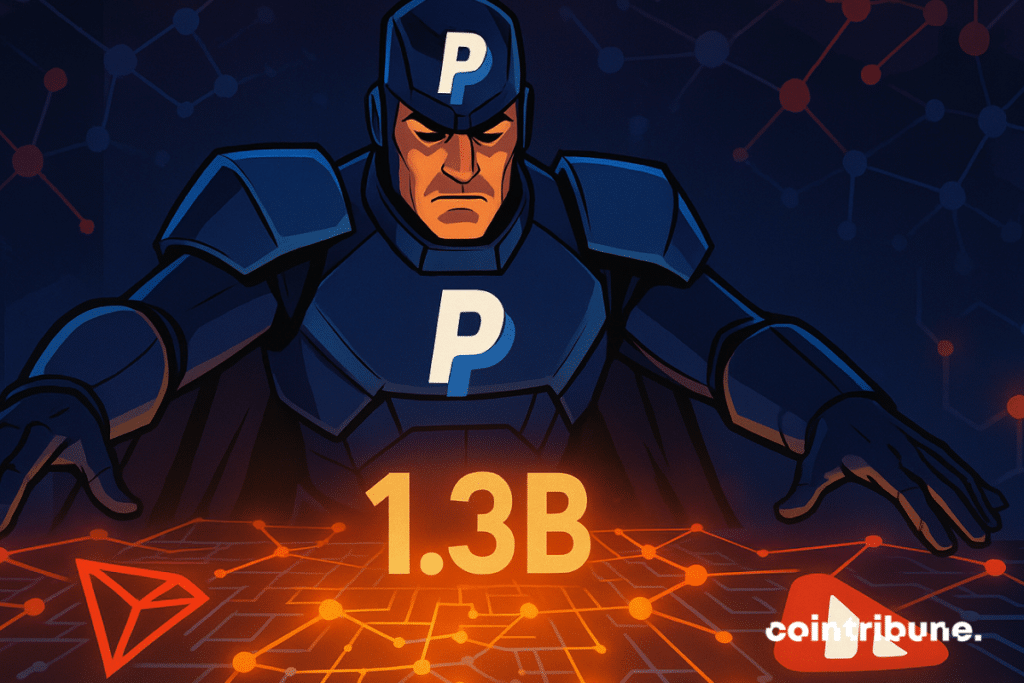PayPal’s Stablecoin Expands to 9 New Blockchains: Here’s What It Means for Crypto
PayPal just dropped a bombshell—its stablecoin is now live on nine additional blockchains, massively expanding its reach beyond Ethereum.
Multi-Chain Domination
The move catapults PayPal's stablecoin presence across a diverse ecosystem of networks, positioning it as a serious cross-chain contender. This isn't just about accessibility—it's about capturing market share where traditional finance fears to tread.
Liquidity Everywhere
By deploying across these new chains, PayPal effectively bypasses the bottlenecks of single-network confinement. Users gain seamless movement between ecosystems—exactly what the fragmented crypto space desperately needs.
The Institutional Endgame
This expansion screams institutional strategy. More chains mean more corridors for capital flow—and more reasons for TradFi players to finally pay attention. Though let's be real—they'll probably still call it 'that internet money' at their next board meeting.
PayPal isn't just playing the game—it's rewriting the rules. And with nine new blockchains in its arsenal, the stablecoin wars just got a lot more interesting.

In brief
- PYUSD reaches a record market cap of $1.3 billion.
- LayerZero expands the stablecoin to nine new blockchains.
- 36% of surveyed companies already report using PYUSD.
- PayPal strengthens its position in the global stablecoin battle.
PYUSD crosses a key milestone in the stablecoin universe
On September 18, PayPal’s PYUSD stablecoin surpassed $1.3 billion in market capitalization for the first time, according to CoinGecko data.
Launched only two years ago, it quickly established itself, particularly among companies. A survey conducted by EY-Parthenon reveals that 36% of them already use PYUSD, ahead of newer players like Athena’s USDe or Sky Protocol’s USDS.
This breakthrough is especially notable since PayPal joined the stablecoin race well after its rivals. The market remains dominated by Tether (USDT), with $171 billion, and Circle (USDC), with $74 billion.
Yet, PYUSD is making its way as a credible alternative, notably in institutional use cases, where the issuer’s solidity and reputation are decisive criteria.
PayPal’s key advantage lies in its brand image: a globally recognized, regulated player, already deeply embedded in the daily lives of millions of users.
This heritage gives it immediate legitimacy in a sector where trust remains key, and where many stablecoins still struggle to gain market recognition.
USDCUSDT chart by TradingViewA strategic expansion to nine additional blockchains
Another major highlight of the week is the arrival of PYUSD on nine new blockchains, including Tron and Avalanche, thanks to the LayerZero interoperability protocol. This expansion relies on Stargate, a bridge connecting more than 80 networks, recently acquired by LayerZero.
Concretely, PayPal’s stablecoin becomes available in environments where demand is particularly strong.
Tron, essential for low-cost cross-border transfers, and Avalanche, known for its DeFi applications, open much broader adoption prospects for PYUSD.
This integration strengthens both its liquidity and accessibility while encouraging its use in new use cases.
“Innovations like this are essential to create the transparent and interoperable financial infrastructure that users and developers demand“, emphasizes David Weber, head of the PayPal USD ecosystem.
In a stablecoin market estimated at over $270 billion, interoperability becomes a decisive factor to remain competitive and attract users beyond a single ecosystem.
With this double progress – surpassing the $1.3 billion market cap and expanding to new networks – PayPal sends a clear signal: PYUSD enters the league of the major stablecoins.
Although the dominance of Tether and Circle remains overwhelming, PayPal relies on a trio of strengths – trust, innovation, and institutional adoption – to establish itself as an essential player in digital payment and decentralized finance.
Maximize your Cointribune experience with our "Read to Earn" program! For every article you read, earn points and access exclusive rewards. Sign up now and start earning benefits.

